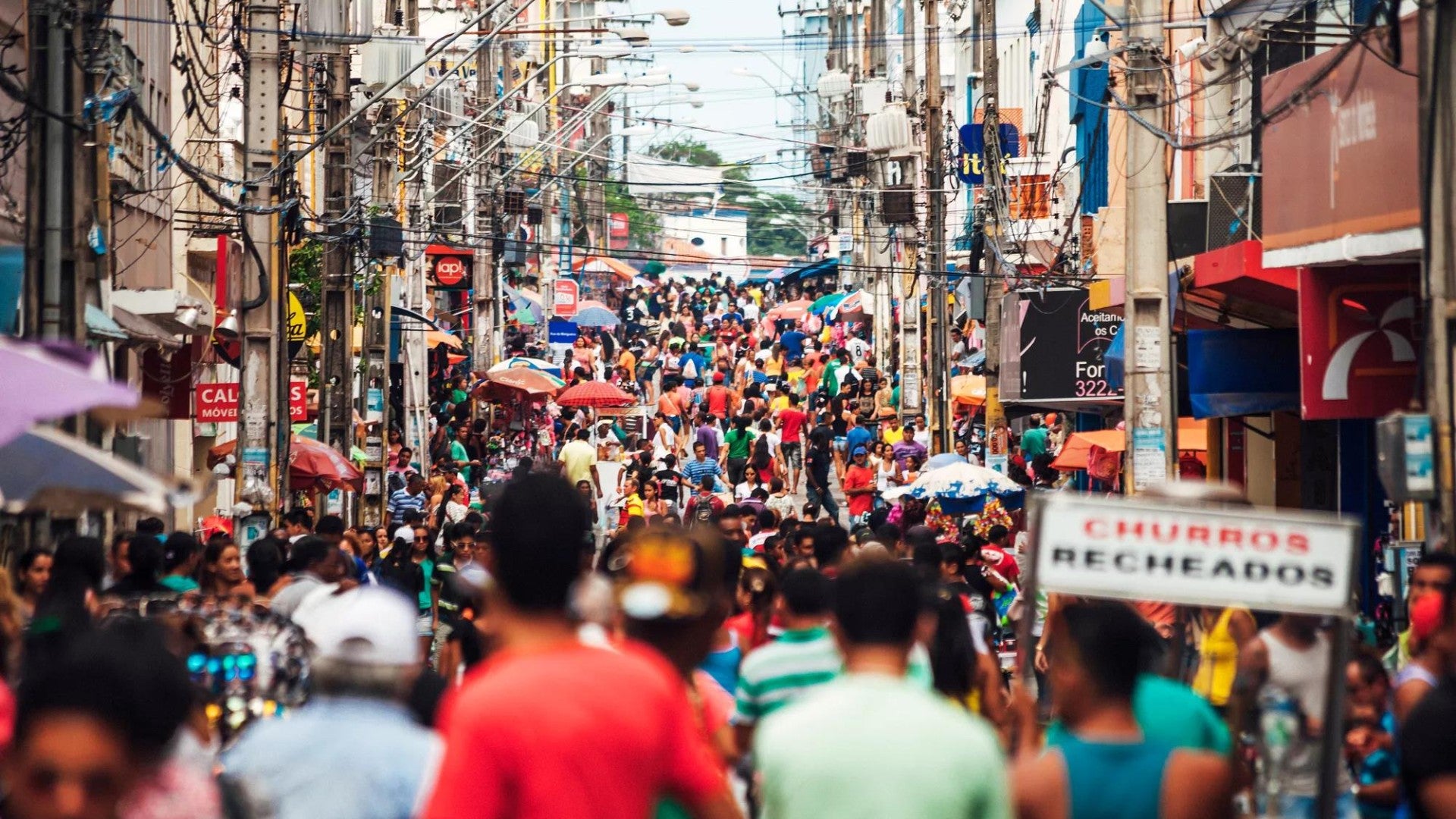Improving financial inclusion may accelerate progress toward combatting global challenges.

3 min read |
Note: Below is a featured key finding from the 2022 Global Financial Inclusion Index.
Financial inclusion is positioned prominently by the United Nations (UN) as an enabler of other developmental targets within the 2030 Sustainable Development Goals, where it is featured as a component of eight of the 17 goals.1
- SDG1 on eradicating poverty
- SDG 2 on ending hunger, achieving food security, and promoting sustainable agriculture
- SDG 3 on profiting health and well-being
- SDG 5 on achieving gender equality and economic empowerment of women
- SDG 8 on promoting economic growth and jobs
- SDG 9 on supporting industry, innovation, and infrastructure
- SDG 10 on reducing inequality
- SDG 17 focuses on strengthening the means of implementation, suggesting there’s an implicit role for greater financial inclusion through greater savings mobilization for investment and consumption, which can spur growth.
As such, we considered the correlation between the Global Financial Inclusion Index and several other indices which demonstrate how advanced different markets are in relation to various economic and social objectives.
For example, there's an opportunity to analyze—and to measure over time—the relationship between financial inclusion and productivity. Do financially inclusive economies typically have a higher output? Similarly, are financially inclusive economies more resilient to market downturns? Are they home to happier populations? And is there a link between better financial inclusion and a market’s ability to adapt to, and mitigate the effects of, climate change?
The analysis does not seek to imply any causal link between higher financial inclusion and the ability of economies to meet wider socioeconomic challenges. However, the fact that the UN acknowledges the connection between them suggests that improving financial inclusion can accelerate progress towards meeting the SDGs and combatting global challenges around hunger, climate resiliency, economic resilience, productivity, and overall health and well-being.
The strong positive correlations that the research shows encourage us to consider how improving access to relevant financial tools, services, and advice might help markets make progress against other concerns such as hunger, climate resiliency, and overall health and well-being.
| Theme | Index | Correlation |
|---|---|---|
| Climate change adaptation | The ND-GAIN Market Index | 0.81 |
| Economic resilience | The FM Global Resilience Index | 0.78 |
| Human development | The Human Development Index | 0.77 |
| Productivity | ILOSTAT statistics on labor productivity | 0.74 |
| Food security | Global Food Security Index | 0.72 |
| Happiness | World Happiness Report 2022 | 0.68 |
Results overview:
- The correlations between the Global Financial Inclusion Index rankings and the rankings of the same markets in the other indices listed above are strongly positive and significant. Rankings are compared using Spearman’s rank correlation coefficient and scored between –1 and 1 where 1 is a perfect positive correlation.
- All correlations show a strong, positive relationship between financial inclusion and other factors which shape a resilient and thriving society.
- Correlation does not imply causation and it’s likely that the relationship between financial inclusion and other indices is driven in large part by other factors these economies have in common. For example, developed economies tend to rank highly across all of the indices to which we compared our own results.
- More developed markets are more likely to have the structures in place to promote financial inclusion and have larger budgets (public and private) to spend on requirements around food security, health care, climate change, etc.
- One way of reading these correlations therefore is as a reflection of a market’s stage of development
- The strongest relationship is between financial inclusion and climate change adaptation which has a correlation coefficient of 0.81.
- The high correlation may be explained by the fact that more advanced economies are further along the path in addressing the climate crisis—and have the financial means to do so—just as they are further along the path to addressing financial inclusion.
- By contrast, extensive existing research suggests that emerging economies need trillions of dollars of investment to allow them to meet net-zero targets while continuing to grow and prosper.
- India, China, and Indonesia, for example, all rank far higher for financial inclusion than they do for climate change adaptation.
- The U.S. also exhibits a large gap, ranking second for financial inclusion but 16th for climate change resilience.
- The correlation between financial inclusion and economic resilience is also strongly positive at 0.78.
- Research from the World Bank demonstrates not only that “access to financial services is essential for resilience and economic recovery” but also that economic shocks, such as COVID-19, disproportionately impact lower income households, small businesses, and individuals in predominantly emerging markets without, for example, easy access to credit, digital payments, and microfinance.
- The top five largest market gaps where the Index rankings are higher than the economic resilience rankings are all in emerging economies (China, Hong Kong, Thailand, India, and Vietnam).
- Equally, four out of the top five markets which rank better on economic resilience than financial inclusion are European (Germany, France, Italy, and Spain).
- When comparing the rankings for financial inclusion and happiness, the correlation stands at 0.68, which although lower than the other relationships we explored, is still a strongly positive relationship.
- The markets with the largest ranking gaps are Hong Kong and Singapore which rank fourth and first for financial inclusion but 35th and 19th respectively for happiness.
- By contrast, Italy, Saudi Arabia, and Argentina rank significantly higher for happiness than financial inclusion.
To read more Index insights or the full report, see Data & Resources.
Connect with us
Want to stay up to date on our research insights? Follow us on LinkedIn. Have a question for our media team? Contact media relations.


